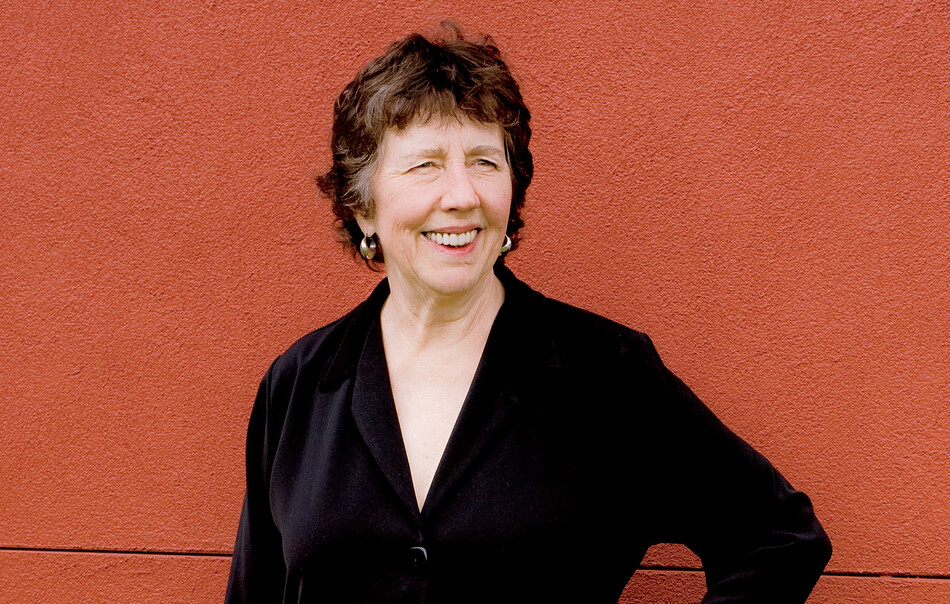From her longtime home in New York’s Hudson Valley, composer Joan Tower ’78GSAS reflects on her early years at Columbia.
“We were pioneers, although we didn’t know it at the time,” she says, describing her experience in 1964 as one of only two women doctoral students in music composition and theory. Studying with now legendary faculty — Otto Luening, Vladimir Ussachevsky, Mario Davidovsky, and Chou Wen-chung ’54GSAS — Tower spent more than a decade in and around Columbia, composing and performing, before, she says, “I was finally” awarded a doctorate of musical arts in 1978.
Since then, Tower has established herself as one of the most revered and performed contemporary composers of her day. A three-time Grammy winner and the first woman to win the coveted Grawemeyer Award in composition, Tower has also won a global audience. Her Fanfares for the Uncommon Woman, a work that premiered in 1987 with a nod to Aaron Copland’s 1942 Fanfare for the Common Man, helped establish her reputation. Over several decades, the fanfares grew to six movements, dedicated, in Tower’s words, to “women who take risks and are adventurous.” To date, more than five hundred orchestras and ensembles have performed them.
At eighty-six, Tower isn’t losing momentum. For many years she has been producing a steady stream of works for ensembles of every size and type, and recently she has worked on a concerto for saxophonist Steven Banks, a composition for the Cassat String Quartet, and an orchestral piece for Yale University.
As a pianist, Tower has performed widely, especially with the Da Capo Chamber Players, a storied contemporary-music ensemble that she cofounded in 1969. She is also the Asher B. Edelman Professor in the Arts at Bard College, where she started teaching in 1972. Tower chuckles while saying that music composition “can’t really be taught” but adds that she has enjoyed coaching young composers as they develop their own voices.
While she and many others yearn for the day when “women composers” are more widely referred to simply as “composers,” Tower acknowledges the huge progress made recently by women in her profession, particularly in the years since the 2020 centennial celebrations of the ratification of the Nineteenth Amendment, securing women’s right to vote. Tower and eighteen other women were commissioned that year by the New York Philharmonic for the much lauded “Project 19,” which spotlighted established composers like Tower as well as rising talents like Mary Kouyoumdjian ’21GSAS and Nina C. Young ’17GSAS.
Tower grew up mostly in New Rochelle, New York, but spent part of her childhood in South America, where she was entranced by Bolivian rhythms, particularly of folk percussion instruments. No surprise, then, that her music is often praised for its rhythmic vitality. She describes herself as different from the “uptown music intellectuals” who frequented Dodge Hall during her Columbia days, and while she expresses great respect for the intellect and accomplishments of her academic contemporaries, her own focus has been on creating and performing more accessible music. “I’ve always been more interested in making music than talking about it,” she says.



